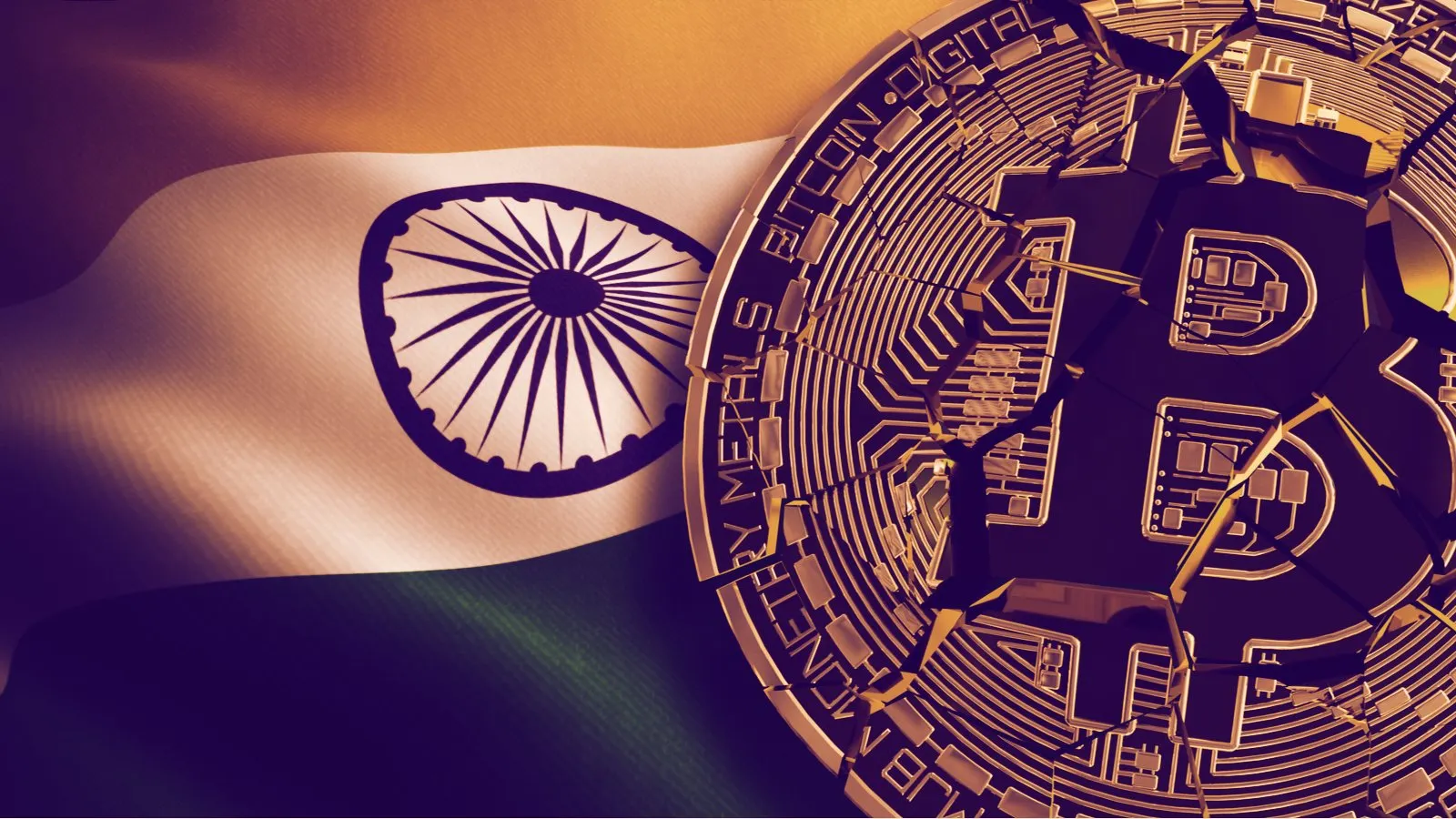In brief
- India's government is looking to enact a blanket ban on cryptocurrencies, a new report says.
- If the previous proposal is anything to go by, Indian citizens may face harsh punishment for using crypto in any form.
- Just in March, the industry rejoiced as the country's Supreme Court reversed its central bank's crypto ban.
India’s government plans to introduce a new bill that will effectively ban all cryptocurrencies in the country. If it comes into force, citizens who use crypto would be facing fines of up to 250 million Indian rupees (around $3,3 million) or up to ten years in prison, Economic Times reported today.
According to ET’s high ranking sources who are close to the government, this new effort was primarily caused by The Reserve Bank of India (RBI) standing down after the Supreme Court ruled it couldn't ban crypto traders and crypto-related firms from accessing banking services.
Now, the Indian government is reportedly seeking to enforce a blanket ban on Bitcoin, believing that the RBI’s previous circular was not effective enough.
“A note has been moved (by the finance ministry) for inter-ministerial consultations,” a senior government official told ET.
After a series of consultations, the note will be moved to India’s Parliament, experts said. They also noted that if a somewhat similar draft proposed at a high-level government panel back in July 2019 is any indication, the new one will likely make it “illegal to hold, sell, issue, transfer, mine or use cryptocurrencies” in India.
“And, if passed in the current form, would completely decimate the crypto-industry in India,” Amit Maheshwari, partner at AKM Global, told ET.
Correspondingly, the panel was headed by former finance secretary Subhash Garg in April 2019 and proposed harsh punishments for using or owning crypto. The draft law stated that any direct or indirect use of cryptocurrency should be punishable by fines or one to ten years of jail.
Furthermore, repeat offenses could net Indians from five years in prison and could be extended to ten years with a fine—up to 250 million Indian rupees (around $3.3 million).
Maheshwari added that he hoped India’s government won’t go ahead with the bill in its present form, although it’s currently unclear how much the new draft actually resembles the one from 2019.
A statement from WazirX CEO, @NischalShetty on today's news about a draft note on crypto ban in India.#IndiaWantsCrypto https://t.co/alhR3SeplN
— WazirX (@WazirXIndia) June 12, 2020
“It’s not clear whether the finance ministry intends to work upon the old draconian crypto bill or whether they plan to work on bringing a new bill,” noted Nischal Shetty, CEO of Bitcoin exchange WazirX, in his latest statement, adding that “I’ve also said it before, that when it comes to regulating crypto, I’m positive that India will follow the footsteps of developed countries like Japan, USA, UK, Australia, and more.”
As Decrypt reported previously, India’s central bank barred regulated institutions from offering banking services to crypto traders or companies in April 2018. In its turn, the country’s Supreme Court overturned the RBI’s ban, deeming it too harsh.
“While we have recognised [...] the power of RBI to take a preemptive action, we are testing in this part of the order the proportionality of such measure, for the determination of which RBI needs to show at least some semblance of any damage suffered by its regulated entities. But there is none,” the court stated at the time.
.@binance is the only international crypto exchange to invest in India, before the ruling, and even today. But I expect more investments to go there now.#IndiaWantsCrypto
— CZ Binance 🔶🔶🔶 (@cz_binance) March 4, 2020
Consequently, executives from the crypto industry were highly optimistic about the court’s ruling, some of whom predicted that reopened Indian exchanges could lead to a crypto boom. Instead, if the new bill passes, it looks like it may lead to a crypto bust.

